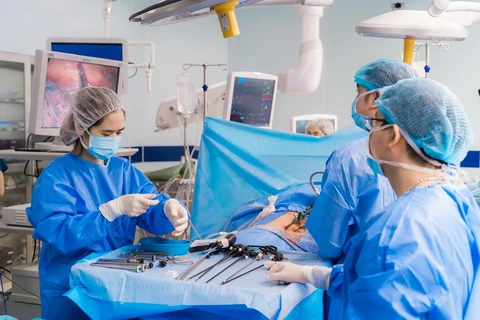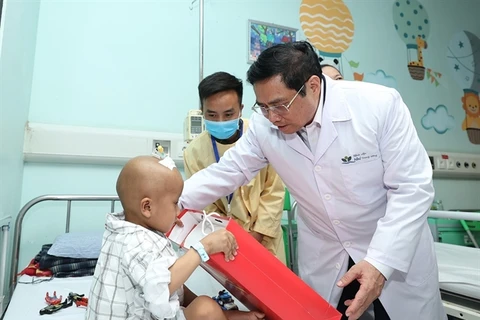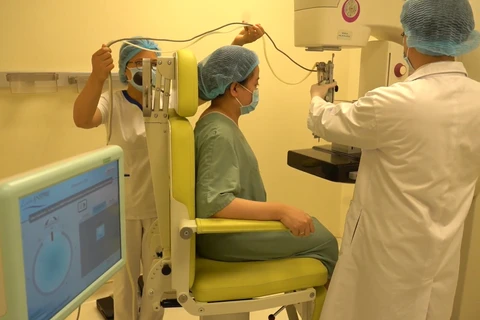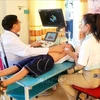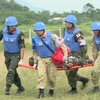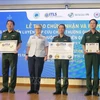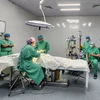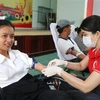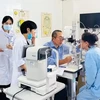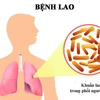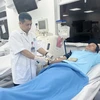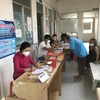Hanoi (VNA) - The number of cancer cases related to the digestive system such as stomach, rectal, colorectal and liver cancer is on the rise, particularly among young people in Vietnam.
This information was revealed at a workshop entitled “Update on gastrointestinal cancer treatment”, jointly organised by the Japanese Embassy in Vietnam, IMS Group of Japan, Vietnam Medical Association and Hong Ngoc-Phuc Truong Minh General Hospital in Hanoi on June 20. It is part of activities to mark the 50th anniversary of diplomatic ties between Vietnam and Japan.
Gastrointestinal cancer has become a global problem, heard the conference. According to the Global Cancer Observatory (Globocan 2020), every year, Vietnam records more than 33,000 cases of stomach and rectal cancer. Of which more than 22,000 are killed by the diseases.
According to a representative of the Japanese Embassy in Vietnam, Japan is one of the countries with the best healthcare system in the world. It is leading in terms of successful treatment of gastrointestinal cancer thanks to the development of preventive medicine and the application of advanced cancer treatments.
With the hope of helping improve the medical environment for countries in the region, the IMS Group has carried out many activities in Vietnam including sending experts in the field of gastroenterology to share methods for early detection of gastrointestinal cancer as well as robotic surgery treatment with local doctors and nurses.
Associate Professor Nguyen Xuan Hung, Vice Chairman of the Scientific and Technical Council of Hong Ngoc- Phuc Truong Minh General Hospital, said that symptoms of digestive diseases are difficult to detect so it is easy for patients to miss the diagnosis all together or confuse it with other conditions.
Doctors and delegates at the workshop discussed four main topics including endoscopy for early detection of gastrointestinal cancer; treatment of stomach cancer and laparoscopic surgery and robotic surgery with the participation of domestic and international experts.
 Dr. Shinji Endo, Director of San'aikai General Hospital- IMS Group of Japan, speaks at the workshop. (Photo: VietnamPlus)
Dr. Shinji Endo, Director of San'aikai General Hospital- IMS Group of Japan, speaks at the workshop. (Photo: VietnamPlus) The workshop is expected to contribute to improving the professional capacity of the grassroots healthcare facilities in the early diagnosis of gastrointestinal cancer and improvement in cancer treatment.
Dr. Shinji Endo, Director of San'aikai General Hospital - IMS Group, said that studies show that most cases of stomach cancer are caused by HP bacteria.
He advised people to take regular check-ups to detect disease early and eliminate HP bacteria in the body.
In the context that the number of gastrointestinal cancer patients in Vietnam has increased and many only found it out in the final stages, Endo said that it is necessary to build an institution so that everyone can easily access health check-ups and testing for early detection with the support of the Government.
According to the Vietnam Association of Gastroenterology, digestive disease is still one of the most common diseases in the country. The number of people infected with the disease account for nearly 10% of its population.
This situation requires more awareness and investment in research on digestive-related diseases to contribute to early detection, effective treatment, and prevention, helping reduce the burden caused by the disease.
According to the World Health Organisation, every year, there are nearly 20 million new cases of cancer globally and more than 10 million deaths from the disease, and two-thirds of patients are in developing countries./.


